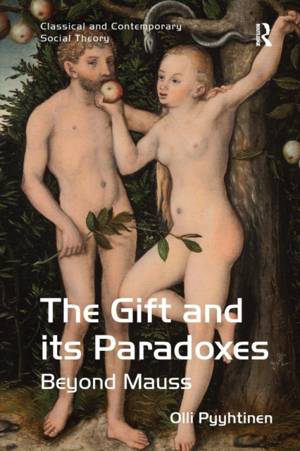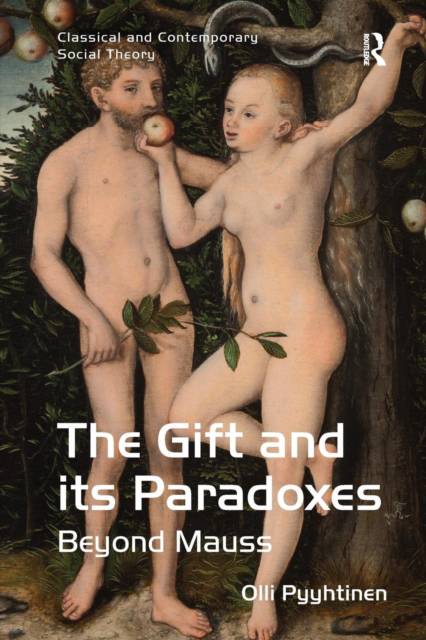
- Retrait gratuit dans votre magasin Club
- 7.000.000 titres dans notre catalogue
- Payer en toute sécurité
- Toujours un magasin près de chez vous
- Retrait gratuit dans votre magasin Club
- 7.000.0000 titres dans notre catalogue
- Payer en toute sécurité
- Toujours un magasin près de chez vous
Description
Bringing social theory and philosophy to bear on popular movies, novels, myths, and fairy tales, The Gift and its Paradoxes explores the ambiguity of the gift: it is at once both a relation and a thing, alienable and inalienable, present and poison. Challenging the nature of giving as reciprocal, the book engages critically with the work of Mauss and develops a new theory of the gift according to which the gift cannot be reduced to a model of exchange, but must instead entail a loss or sacrifice. Ultimately, the gift is examined in the book as the impossible occurrence of gratuitous giving. In addition to exploring the conditions of possibility and impossibility of the gift, the book draws on the thought of figures such as Derrida, Serres, Simmel, Cixous, Irigaray and Heidegger to argue for the relevance of the phenomenon of the gift to broader issues in contemporary social sciences. It takes up questions concerning the constitution of community and the processes by which people are included in or excluded from it, gender relations, materiality, the economy, and the possibility that death itself could be a gift, in the form of euthanasia or self-sacrifice. A rigorous yet accessible examination of the phenomenon of the gift in relation to a range of contemporary concerns, The Gift and its Paradoxes will appeal to scholars and students within sociology, philosophy, anthropology, political theory and film and literature studies.
Spécifications
Parties prenantes
- Auteur(s) :
- Editeur:
Contenu
- Nombre de pages :
- 180
- Langue:
- Anglais
- Collection :
Caractéristiques
- EAN:
- 9781138271845
- Date de parution :
- 28-11-16
- Format:
- Livre broché
- Format numérique:
- Trade paperback (VS)
- Dimensions :
- 156 mm x 234 mm
- Poids :
- 263 g

Les avis
Nous publions uniquement les avis qui respectent les conditions requises. Consultez nos conditions pour les avis.






